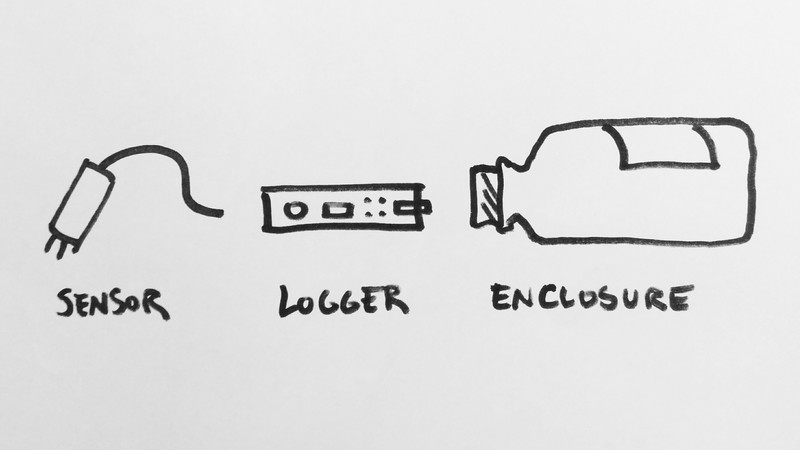
Water Sensors
Many people interested in measuring various water quality parameters that are relevant to environmental health in low-cost and accessible ways. Many have been working on low-cost, open-source sensors for water chemistry and physical properties, and there are also several commercially available water sensors and analog tools that can measure relevant water quality parameters.
Overview
Often, electronic environmental sensors are just one part of a system that includes:
- a data logger
- some kind of water and weather-proof enclosure
- a sensor of some kind -- see Sensors, below
And we also have to consider:
- how to configure the logging program & connect to the chosen sensors
- how to download data
- how to visualize data
- how to design experiments using these techniques
It's hard work writing good documentation. Let's team up and share as much of the above as possible -- many of these steps are either not device-specific, or are at least very helpful if written in a way that supports use across projects.
Getting started
If you have never used an electronic water sensor before, try the Coqui project, which is specifically designed for folks who are just starting out.
Build a Coqui - a simple device to read a sensor via an audible tone.
The Coqui is also a stellar example of how to document a project. (above photo by @akshaya)
Questions
Choosing Sensors
Often the first step is to look for a sensor for what you're hoping to measure. Below we're collecting info on different kinds of water quality sensors, and their:
- cost
- sensitivity/accuracy
- links and documentation
Can you afford a sensor? Can it detect what you're looking for? Where can you learn more about it?
Here are some pages where we've broken out resources by sensor type:
And here's a longer collection of many different sensors:
See and edit the full spreadsheet here
To be added
- See this great list of sensors from the KnowFlow
- the Wheestat can be plugged into a datalogger
- add more here to be integrated!
- Figaro electronic #hydrogen-sulfide sensors here
Are there others you're interested in? Please add them to the list here and to the linked Google Doc! (below are some not listed above yet)
- flow rate
- temperature
- transparency
- chemical oxygen demand - COD
- phosphate
- total dissolved solids - TDS
- Hardness
- Lead
- bacteria
- fluoride
[prompt:text:ie temperature]
Analog methods
Even though this wiki page is labeled "water sensors," the most accessible modes of measuring water quality parameters are often analog, non-digital methods where you directly observe water (e.g. using a secchi disk to assess turbidity) or collect a sample and test it with a visual method (e.g. color-change pH strips). Several analog tools are included in the spreadsheet, and please add more!
Hybrid approaches and enclosures
In some cases, it may be possible to couple a commercially available probe sensor with a DIY data logger (such as the Riffle, https://publiclab.org/riffle) and an water-tight enclosure to create a lower-cost deployable sensor. Deployable sensors can be extremely useful for long-term monitoring, monitoring in places that are difficult to access frequently, or to document fluctuations in water chemistry with greater temporal resolution.

